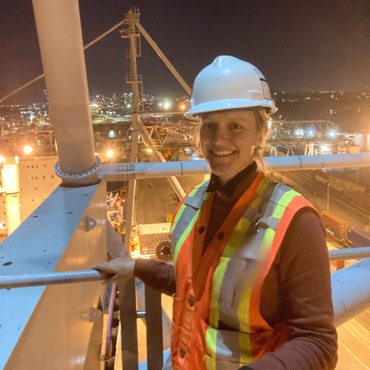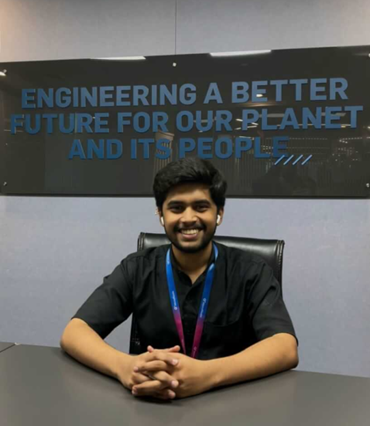Let’s find your next opportunity
AI Assistant: {{ chat.assistant.message }}
Suggested roles matches
Sort By
{{ job.job_posting_title }}
{{ job.is_cms_job ? (job.cities.split(';').length > 1 ? 'Various locations' : job.location_mappings[0]) : (job.location_mappings.length > 1 ? 'Various locations' : job.location_mappings[0]) }}
We are sorry there are no jobs that match your exact criteria. Try a new search term, or use the filters to continue browsing for available opportunities.
Suggested roles matches
{{ job.title }}
{{ [job.cities[0], job.regions[0], job.countries[0]].join(', ') }}
Various locations
We are sorry there are no jobs that match your exact criteria. Try a new search term, or use the filters to continue browsing for available opportunities.
Let’s find your next opportunity
{{ job.job_posting_title }}
{{ job.is_cms_job ? (job.cities.split(';').length > 1 ? 'Various locations' : job.location_mappings[0]) : (job.location_mappings.length > 1 ? 'Various locations' : job.location_mappings[0]) }}
The Middle East is home to some of the most ambitious infrastructure and development projects in the world. Between megaprojects like NEOM and the UAE's Centennial Plan 2071, the ambitious vision of the region has resulted in an exciting environment.
Project management in the Middle East offers a chance to lead on future-defining work. Of course, it isn't without its challenges.
Here, we'll take a look at everything you need to know about Middle East project management jobs.
Why project management in the Middle East?
The region is expected to experience record growth of 2.3% in 2024. With governments investing billions, the Middle East is teeming with innovation. Bold pledges, like Saudi Arabia's Vision 2030, also show how pushing for net zero is a core priority.
For project managers, the scale and complexity of projects is unmatched. Take New Murabba. This multi-billion-dollar initiative is a forward-thinking blend of technology and sustainability. Project managers in New Murabba lead on a one-of-a-kind development that plays an important role in the regions' future.
Skilled project managers are in high demand. By 2030, it's projected that there will be 80,000 job openings for such professionals in the region. With demand comes opportunity and ample rewards.
The rewards of working in project management in the Middle East
Project manager jobs in the Middle East are an attractive proposition. A global innovation hub, it's a place where careers flourish and bright ideas become realities. Here are a few of the rewards project managers can expect.
- Leading on iconic projects - The large-scale developments in the region are globally recognized. From building smart cities to creating cutting-edge infrastructure, project managers can lead initiatives that harness the latest technologies and make a real difference.
- Professional growth and learning - There's plenty of career development when managing projects in the Middle East. At AtkinsRéalis, we believe in continuous learning and developing excellence. You'll learn from industry leaders on a daily basis on these innovative projects.
- Collaborative and diverse work environments - Our teams are composed of professionals from various backgrounds. The Middle East is changing, as evidenced by Saudi Arabia's female labor force surpassing its target of 30%. We take equality, diversity and inclusion seriously and ensure everyone is welcome.
- Attractive compensation and benefits - In addition to professional rewards, roles in the Middle East have great rewards and benefits. Between tax-free income, premium medical insurance, flight allowances, housing support and more, AtkinsRéalis ensures the best talent receives the benefits they deserve.
Challenges in project management in the Middle East
As appealing as the rewards are, there are challenges to consider. These are particularly pertinent for project managers relocating to the Middle East. It's a big decision and it's important to weigh up both sides of the coin.
- Cultural diversity - The region is likely to have different cultures and business practices than what you're used to. This even extends to the working week, with Sunday-Thursday being the operating days in some areas. When navigating a multicultural workforce, showing respect for norms is important. Be sure to research what you can expect.
- Regulatory landscapes - Each country has its own regulations. Don't assume that the guidelines you've previously worked within will apply here. Middle East project managers must remain agile while ensuring compliance at all stages. Get clued up on the Middle East regulatory landscapes to prevent any missteps when you start working.
- Environmental challenges - The Middle East climate can be unforgiving for those who aren't accustomed to it. As well as scorching heat, 60% of its population lives in areas of high water stress. This poses unique challenges. The environment may influence project milestones and timelines.
How to succeed in Middle East project manager jobs
There are key attributes that breed success in project management. Soft skills like effective communication and relationship management are crucial. Maintaining transparency, setting realistic expectations and addressing stakeholder concerns will successfully align the project at hand.
Understanding the cultural nuances of team members and stakeholders is especially important in the Middle East. Respecting local customs and immersing yourself in the culture will ensure you're working in line with the norms of the region.
Being able to use technology and sustainability practices is equally important. Familiarity with everything from AI and data analytics to building information modeling is crucial. You can continuously develop technical skills through workshops, certifications, and training.
Explore project manager jobs with AtkinsRéalis
There's never been a better time to work as a project manager in the Middle East. With groundbreaking projects and unparalleled opportunities, the region is the perfect place to accelerate your career.
Browse our project management jobs in the Middle East today or join our talent community.
Related blogs
Related jobs

Everyone belongs
We empower each individual to shine and contribute to our collective impact. We believe in the power of unique perspectives. It’s how we’re engineering a better future every single day.













